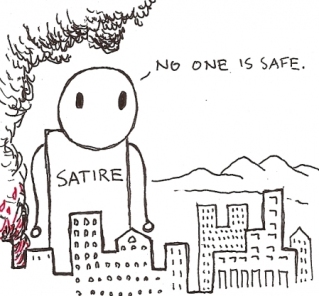Dryden and Satire
John
Dryden, also known as the 'father of criticism', is known for his satirical
writings during the Restoration Era. A defender of writing, Dryden ushered in satirical
devices to more importantly improve the offended rather than diminish. His gift
with wit was that it be so subtle, unforeseen even, that the offended should not
even be made aware that any offense has taken place. Mac Flecknoe (mac flecknoe
poem), one of Dryden’s most famous works, is abundant in satirically
grand language that stings with abuse, yet it is so tactful that one may have
to reread several times before realizing the insult, which only adds to injury.
And although Dryden was the master of satire and critique, he never departed
from his intentional use of the device, which was meant to lead and result in
reform.

Similarly,
satire is used, for the most part, in the same ways as those during the
Restoration period; however, there are more avenues and access today that can express
the satirical banter. Not only can it be found in prose, but satire is seen
through visual avenues such as television shows like Saturday Night Live (watch SNL clip here,) or through
comics illustrated by political cartoonists. It is a constant variable
throughout news media, music, and protesters alike.
What
is different from satire today is that unlike Dryden, it is not as subtle as he
once suggested. The wit is so in your face, so harsh and aggressive that the
offended is very much aware and it in no way often goes over their head. More
importantly, I am not sure how much reform has occurred from them. It appears
that ridicule is the goal chiefly strived for and reform is a secondary objective
only hoped for and little seen.
Comments
Post a Comment